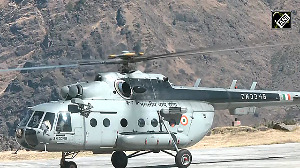Formula One will probably have to wait until 2008 before radical changes that the governing body wants in place by 2006 are implemented, according to Ferrari's Ross Brawn.
"Some things can happen for 2006 but I don't think any of the fundamental things," said the Briton, technical director of the sport's glamour team, at the Spanish Grand Prix.
| |||||||||||
The FIA can impose the changes, which include a new engine formula and the abolition of sophisticated electronic systems, from the end of 2007 when a "Concorde Agreement" governing the sport expires.
But Tuesday's meeting agreed to try and bring the changes forward.
"There are some very good ideas but I think we've got to go through the detail," said Brawn.
"There are some people who believe that we have to have solutions before 2008 or else Formula One is doomed. I'm not sure if that's the case.
"I think whatever is brought in needs to be thought through carefully because we could easily go backwards."
Brawn said all parties wanted to find solutions and he agreed with the aims. "But how we achieve those objectives has in my mind to be very much discussed," he added.
TIME SCALE
Brawn said some things could be ready for 2006 but he highlighted the debate over changing engine capacity and the FIA's wish to introduce a standard electronic control unit (ECU) as problem areas.
"It's simple to say that we will have one ECU but what does that mean?," he said. "Does it mean that you have the same hardware and you write your own software or does the FIA write the software?
"I think we need to be careful with all the changes that are being made that we don't incur more expense, we don't ruin the show, we don't give the big teams more of an advantage than they have now.
"If we wanted a smaller engine or a standard ECU for 2006 then that for sure would favour the teams with a huge resource but would also make it difficult to get customer supplies out to the smaller teams," he said.
BAR head David Richards, whose team are partnered by Japanese car giant Honda, agreed that the proposed time frame looked optimistic.
"There's not a lot to be decided about what will happen in 2008, it's how we bring it forward from the date that's the critical thing," he said.
"In the cold light of day, most of the engine manufacturers could develop a new engine in 18 months' time. It's a hard task, but it isn't impractical.
"However if those engine manufacturers are frantically designing a new engine over the next 18 months and developing it through 2006, where do you think the teams who don't have engine manufacturers or new teams coming into Formula One are going to get their engine from?"
"So maybe the timescale for that is a little optimistic."
Toyota motorsport vice-president John Howett said, however, that the carmaker could produce a modified engine for 2006 while Jaguar managing director David Pitchforth said a reduction in engine capacity was not a problem.








 © 2025
© 2025